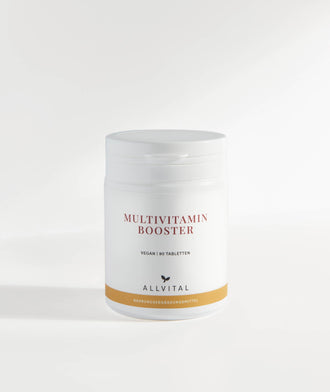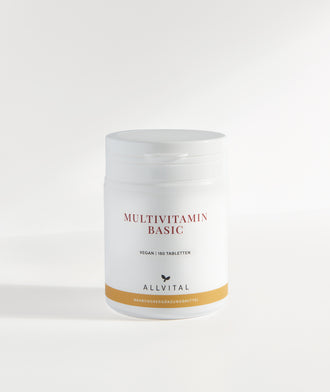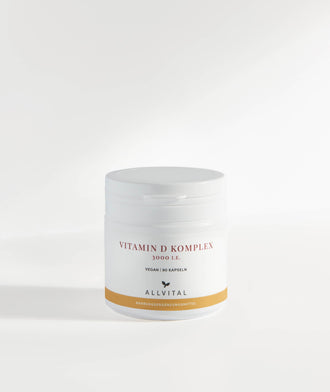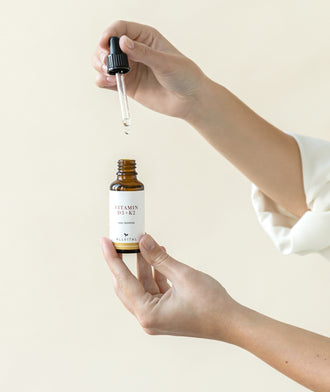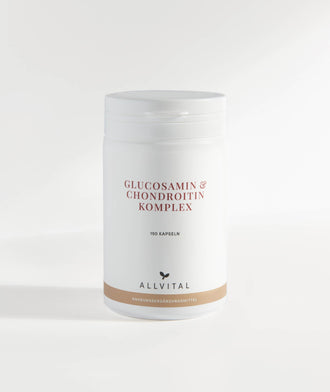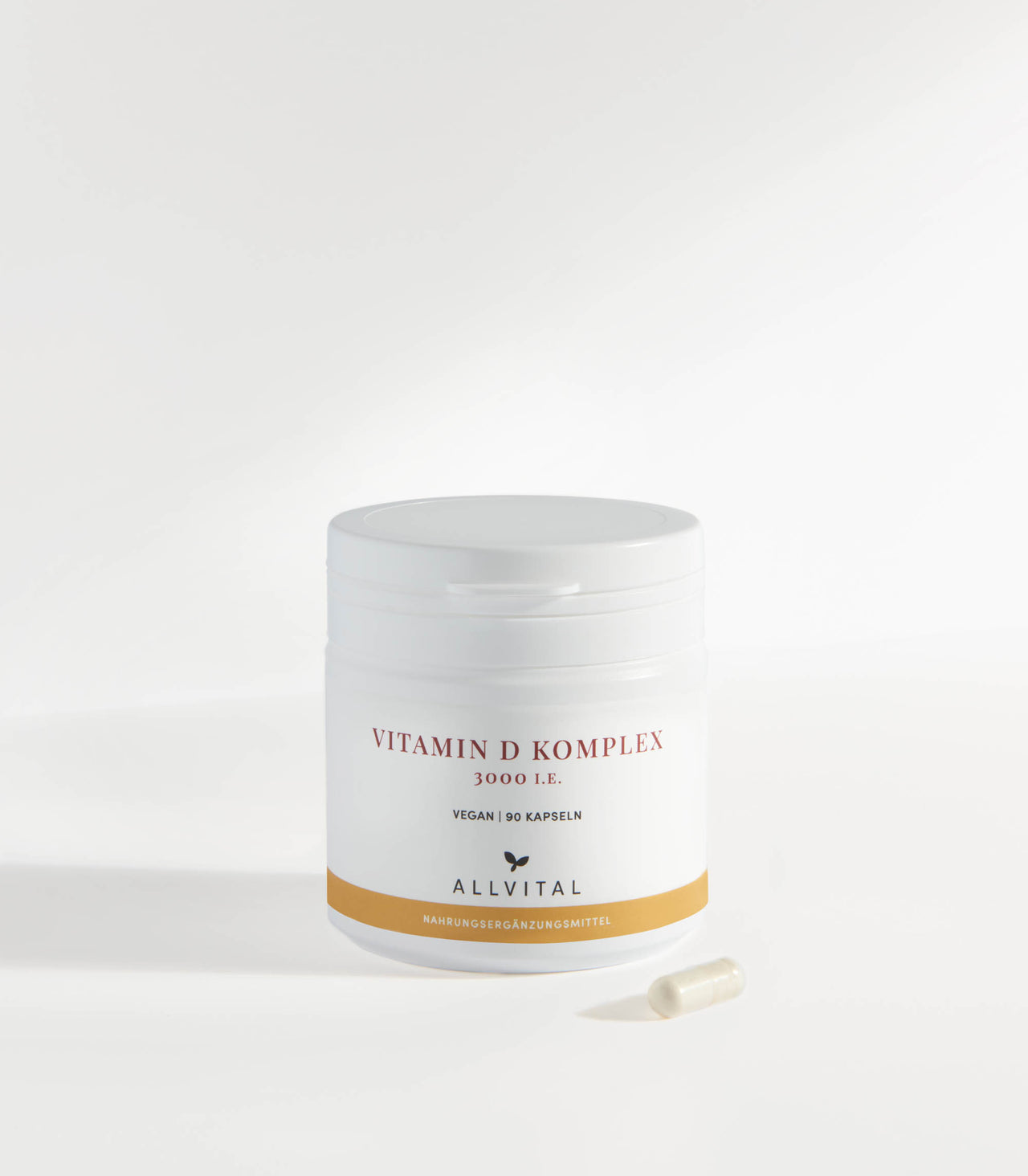
Stay fit and healthy through the winter with Vitamin D
Vitamin D, often referred to as the "sun vitamin", plays a crucial role in numerous vital functions in the human body. Many people are affected by a deficiency, particularly in the darker half of the year.
A good supply of vitamin D in the body is essential for healthy bones and teeth, for the functioning of the immune system and for many other tasks in the body. A vitamin D deficiency could therefore be a risk factor for the development of numerous diseases.
Find out everything you need to know about the functions of this vital vital substance, how to recognise a deficiency and how you can cover your requirements.
What is vitamin D?
Vitamin D is a fat-soluble vitamin and can therefore be stored in the body, unlike water-soluble vitamins. It is stored in particular in fat and muscle tissue and in the liver.
The body covers its vitamin D requirements primarily through its own production under the influence of sunlight. Food only makes a small contribution to the supply.
Tasks of vitamin D in the body
Vitamin D acts like a hormone in the body. It regulates many processes that are crucial for the healthy development and function of the body.
The most important tasks of the sun vitamin are presented below.
Healthy bones and teeth
Vitamin D promotes the absorption of calcium and phosphate from the intestine and reduces their excretion via the kidneys. Calcium and phosphate are important building materials for bones and teeth and vitamin D ensures that the body is well supplied with these substances.
A strong immune system
The sun vitamin also plays a central role in regulating the immune response and helps to prevent infections. A good supply during the cold season is therefore particularly important.
Improved muscle strength
Vitamin D increases muscle strength, for example by stimulating muscle growth and improving the oxygen supply to the muscles.
Protection against chronic diseases?
Recent studies suggest that a lack of vitamin D could be an important risk factor for the development of chronic diseases such as multiple sclerosis (1), diabetes (2), cardiovascular disease (3), depression (4) and even cancer (5).
Further research is needed to confirm these links with certainty.
How does the body produce vitamin D?
The body can produce the sun vitamin itself via a multi-stage process. It uses cholesterol as a starting material.
The process works as follows:
- In the liver, the precursor 7-dehydrocholesterol is formed from cholesterol.
- 7-dehydrocholesterol reaches the skin, where it is converted into previtamin D3 under the influence of UVB radiation. This is unstable and converts spontaneously to cholecalciferol (vitamin D3).
- Calcidiol is formed from cholecalciferol in the liver. Calcidiol is the predominant form of the sun vitamin in the bloodstream and its storage form. It is also measured in blood tests. Calcidiol is hormonally inactive and is only activated by the body when required.
- If the body needs active vitamin D (e.g. if the calcium level in the blood is too low), calcidiol is converted into calcitriol, the active form of vitamin D. This activation can take place in every cell of the body. This activation can take place in every cell of the body.
Foods with vitamin D
Only a few foods contain significant amounts of vitamin D. These are mostly foods of animal origin such as fatty fish, organ meats and egg yolks.
Edible mushrooms that have been exposed to the sun before consumption (e.g. sun-dried mushrooms) are particularly suitable as a vegetarian source of vitamin D. Mushrooms contain the precursor ergosterol, which is converted into ergocalciferol (vitamin D2) by UVB radiation. The human body can convert ergocalciferol into active vitamin D3 and therefore also utilise non-animal sources of the vitamin.
Vitamin D deficiency is common
The body needs UVB radiation to produce the sun vitamin. The proportion of UVB radiation that passes through the atmosphere depends on the position of the sun. At midday, the intensity of UVB radiation and therefore vitamin D production in the skin is significantly higher than in the morning and evening hours.
In the winter months, however, the sun in countries north of 35 degrees latitude does not reach a sufficiently large angle of incidence at midday to ensure the body's own vitamin D production. Germany, for example, extends from 47 to 55 degrees north latitude.
In order to get through the winter in central and northern European countries without a deficiency, the body's stores of the sun vitamin need to be filled in autumn. However, only very few people manage to do this.
Studies on the vitamin D status of the population in Germany show that over 60 % of adults do not have an adequate supply of the vitamin (6).
In order to replenish the body's stores, it is necessary to regularly spend time outdoors, where sufficiently large areas of skin are exposed to natural sunlight for long enough. Our modern lifestyle with long periods spent indoors is therefore not exactly conducive to a good supply of the vitamin.
Symptoms of a vitamin D deficiency
Vitamin D is particularly important for building and maintaining bones and teeth. If there is a deficiency, the structure of these tissues deteriorates. They lose their strength and resilience. This favours diseases such as bone softening (osteomalacia in adults, rickets in children), osteoporosis and tooth decay.
As the sun vitamin is also important for muscle function, a prolonged deficiency increases the risk of falls and bone fractures in older people.
In addition to these officially recognised symptoms, there are numerous other symptoms and illnesses that are associated with a vitamin D deficiency. There is still a lack of reliable scientific evidence.
Should I take vitamin D?
As many factors such as the amount of time spent outdoors each day, skin colour, age, geographical location of residence, etc. have an influence on the vitamin D supply, the question of whether a dietary supplement should be taken can only be answered after a blood test.
A frequently used international classification assumes that the body is adequately supplied with vitamin D if the serum concentration of calcidiol is at least 50 nmol/l (6). However, the reference ranges can vary depending on the laboratory and are often set higher in orthomolecular medicine.
Depending on the extent of the deficiency, the required dose is determined by the treating doctor or therapist. A check-up should be carried out after 2 to 3 months.
Danger of an overdose?
An overdose of vitamin D is rare and is only achieved by taking food supplements in a significantly higher dosage than recommended. An overdose does not occur naturally, as the body regulates the production of the sun vitamin as required.
An overdose of the vitamin leads to an increased calcium level in the blood (hypercalcaemia). Acute symptoms include nausea, abdominal cramps, confusion and a strong feeling of thirst. A chronically elevated calcium level can contribute to the development of kidney stones and vascular calcification (arteriosclerosis).
If you stick to the recommended dosage and check your levels regularly, there is no need to worry about a possible overdose.
Vitamin D Complex from Allvital
Our Vitamin D Complex preparation contains 3000 I.U. vitamin D3, which is obtained from lichen and is therefore vegan. Thanks to its high dosage and high bioavailability, this product is ideal for compensating for an existing vitamin D deficiency.
It also contains vitamin C in two natural forms, which strengthens the normal function of the immune system. We have also added the natural sulphur source MSM to the product, which has antioxidant properties and supports the health of skin, hair and nails.
This results in a balanced preparation that can effectively compensate for a vitamin D deficiency and support the immune system at various levels.
Vitamin D3 + K2 from Allvital
Vitamin K works synergistically with vitamin D because it supports the absorption of calcium from the blood into the bones and therefore counteracts excessive calcium levels in the blood. It also contributes to normal blood clotting.
Our Vitamin D3 + K2 preparation combines the two vitamins in an oily solution based on coconut oil and olive oil. Each drop contains 500 I.U. vitamin D3 and 10 µg vitamin K2.
This preparation is ideal for individually dosing the vitamins and adjusting the dose as you take it.
Other Allvital products with vitamin D
Other Allvital products that contain vitamin D include the combination preparations Multivitamin Basic, Multivitamin Booster and Multivitamin Kids as well as the Glucosamine & Chondroitin Complex. These products contain 50 to 200 I.U. of vitamin D.
Sources
- Carlberg C, Mycko MP. Linking Mechanisms of Vitamin D Signalling with Multiple Sclerosis. Cells. 2023;12(19):2391. Published 2023 Sep 30.
- Li X, Liu Y, Zheng Y, Wang P, Zhang Y. The Effect of Vitamin D Supplementation on Glycemic Control in Type 2 Diabetes Patients: A Systematic Review and Meta-Analysis. Nutrients. 2018;10(3):375. Published 2018 Mar 19.
- Wimalawansa SJ. Vitamin D and cardiovascular diseases: Causality. J Steroid Biochem Mol Biol. 2018;175:29-43.
- Geng C, Shaikh AS, Han W, Chen D, Guo Y, Jiang P. Vitamin D and depression: mechanisms, determination and application. Asia Pac J Clin Nutr. 2019;28(4):689-694.
- Muñoz A, Grant WB. Vitamin D and Cancer: An Historical Overview of the Epidemiology and Mechanisms. Nutrients. 2022;14(7):1448. Published 2022 Mar 30.
- Rabenberg M, Mensink G. Vitamin D status in Germany. Journal of Health Monitoring. 2016;1(2).



